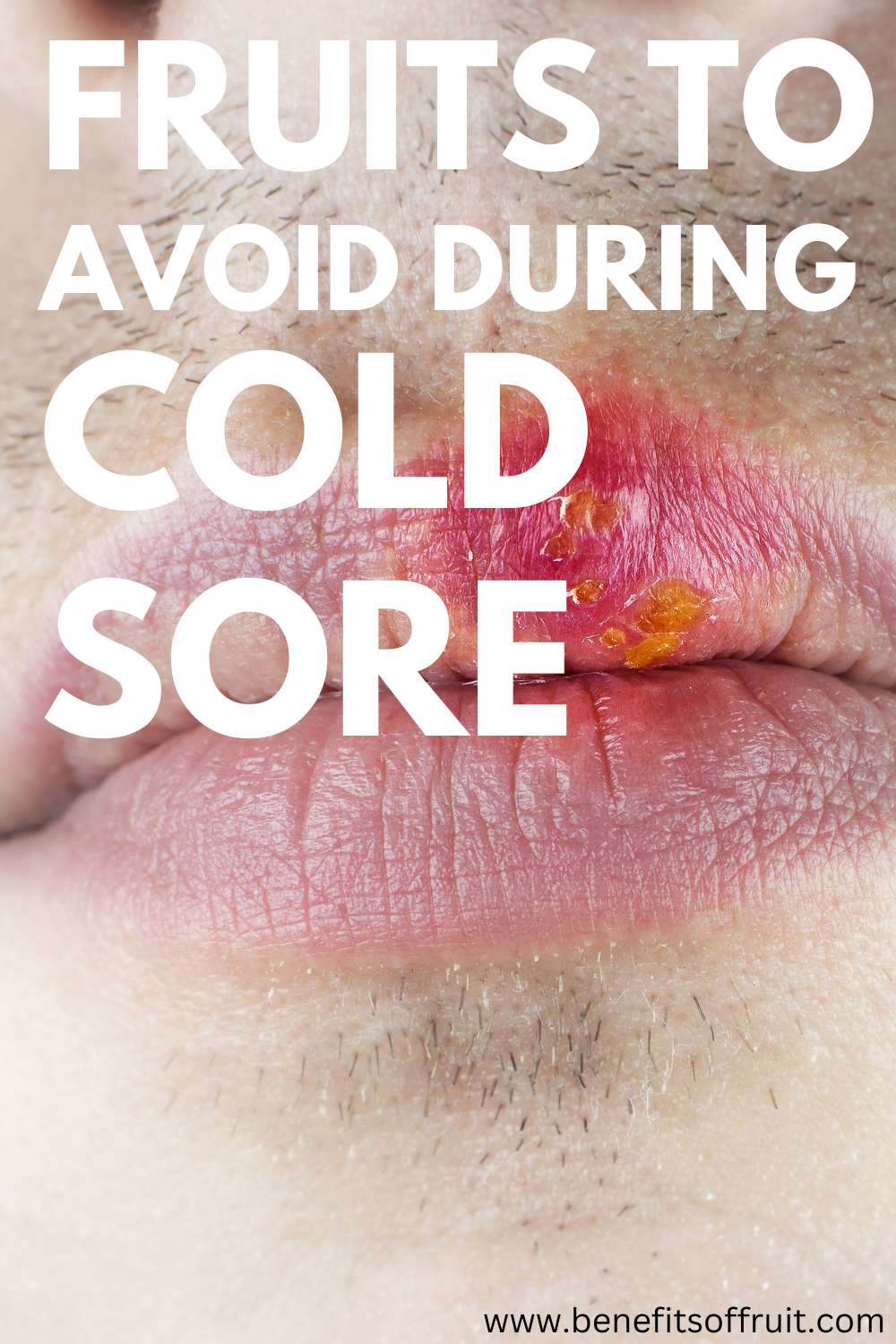Cold sores, also known as fever blisters, are small blisters that appear on the lips and around the mouth, caused by the Herpes Simplex Virus (HSV-1). These sores can be painful, itchy, and highly contagious, often making daily activities uncomfortable. Managing cold sores involves more than just topical treatments; diet also plays a significant role. Certain foods can exacerbate or trigger cold sore outbreaks, especially fruits with specific nutritional properties. In this article, we’ll explore the fruits you should avoid during a cold sore outbreak and understand why avoiding them is essential.
Understanding Cold Sores and Their Triggers
Cold sores are primarily caused by the HSV-1 virus, which lies dormant in the body and can become active due to various triggers. Common triggers include stress, excessive sun exposure, hormonal changes, and dietary factors. The balance between two amino acids, lysine and arginine, in one’s diet is particularly significant. Arginine can promote the replication of the virus, potentially triggering outbreaks, while lysine is thought to counteract this effect. Therefore, consuming foods rich in arginine may exacerbate cold sores, whereas lysine-rich foods could help manage them.
The Impact of Diet on Cold Sores
A well-balanced diet is crucial in managing cold sore outbreaks. Foods that are high in arginine, acidic, or loaded with sugar might provoke an outbreak or prolong the healing process. Being aware of which fruits to avoid can significantly reduce the likelihood of exacerbating cold sores and promote quicker recovery.
Fruits High in Arginine to Avoid
Arginine, an amino acid found in various foods, can promote the replication of HSV-1. Here are some fruits high in arginine that you should avoid during a cold sore outbreak:
- Bananas Bananas are a favorite snack for many due to their convenience and health benefits, like being rich in potassium and vitamins. However, bananas also contain high levels of arginine. This amino acid can stimulate the activity of HSV-1, potentially leading to more frequent or severe cold sore outbreaks. Those who are prone to cold sores should limit their intake of bananas during active outbreaks.
- Oranges Oranges, known for their high vitamin C content, are typically seen as a healthy fruit. However, they also contain arginine, which can stimulate the replication of the HSV-1 virus. Additionally, oranges are highly acidic, which can cause discomfort and irritation around cold sores, potentially prolonging the healing process. It is advisable to reduce the intake of oranges if you have active cold sores.
- Grapes Grapes, commonly consumed fresh or dried into raisins, are another fruit high in arginine. Their relatively high arginine content makes them a risky choice for individuals prone to cold sores. The amino acid content in grapes might contribute to the virus’s activation, so it’s best to limit their consumption during outbreaks.
Fruits with High Acidity
Acidic foods can irritate the sensitive skin around cold sores, leading to further discomfort. Some fruits with high acidity levels to avoid include:
- Lemons Lemons are widely used for their flavor and health benefits, often consumed in teas, juices, and as salad dressings. However, their high acidity can irritate the sensitive skin around cold sores. Even a small amount of lemon juice can cause significant discomfort and delay healing, so it’s best to avoid this fruit during an outbreak.
- Limes Similar to lemons, limes are also high in acidity and are frequently used to add flavor to various dishes. However, due to their acidic nature, consuming limes can aggravate cold sores. The high acidity of limes can make the skin around the sores more sensitive, prolonging recovery.
- Pineapples Pineapples, known for their tropical sweetness, contain a notable amount of vitamin C and other antioxidants. Despite their health benefits, pineapples are also highly acidic. Consuming pineapples can irritate and inflame cold sores, causing significant discomfort and potentially extending healing time. It’s advisable to avoid pineapples during a cold sore outbreak.
Fruits with High Sugar Content
Sugary foods can weaken the immune system, making it harder for your body to fight off viral infections. High sugar levels can also lead to inflammation, further aggravating cold sore outbreaks. Fruits with high sugar content include:
- Mangoes Mangoes are loved for their sweet taste and nutrient-rich profile, providing vitamins A and C. However, their high sugar content can weaken the immune system and contribute to inflammation. For individuals prone to cold sores, consuming mangoes might increase the risk of an outbreak, so it’s best to avoid them during an active infection.
- Lychees Lychees, small and sweet tropical fruits, are another fruit with high sugar levels. They are commonly eaten fresh and are popular in Asian cuisine. However, the high sugar content in lychees can lead to increased inflammation and possibly trigger cold sores. Limiting their intake during outbreaks can help prevent aggravation of the sores.
Conclusion
When managing cold sores, understanding which fruits to avoid can be a crucial step in reducing the severity and frequency of outbreaks. Foods rich in arginine, highly acidic fruits, and those with high sugar content can all exacerbate cold sores, prolonging the healing process and increasing discomfort. By identifying and avoiding these fruits, individuals prone to cold sores can minimize their risk of outbreaks and support faster recovery. Alongside other preventive measures like managing stress and maintaining good hygiene, dietary management is essential in handling cold sores effectively.
